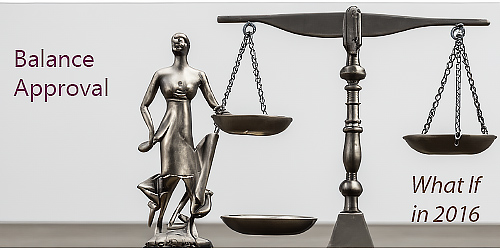| Back OpEd News | |||||||
|
Original Content at https://www.opednews.com/articles/Bottom-up-Electoral-Reform-Bottom-up_Bottom-up-Revolution_Peoples-Choice_Peoples-Revolution-231228-840.html (Note: You can view every article as one long page if you sign up as an Advocate Member, or higher). |
|||||||
December 28, 2023
Bottom-up Electoral Reform
By Paul Cohen
This article is really a plea for help with spreading the word about BAV. There are a few people who support this method of voting but that number is now quite small compared to the number who are completely unaware of it. So long as that is true, it will not even be a candidate for adoption. Changing that will not be easy, but the article proposes a strategy.
::::::::
While we often hear that we live in the world's oldest democracy our country is now rated as only a flawed democracy, aside with Botswana, Poland, Greece, Malaysia and India. But voters can still exercise influence over how they are governed so there is hope that we can still change how we vote. That might help return the U.S. to the list of democracies. But to exercise that power we must build an awareness that this is a problem that can be fixed.
I recall once reading a comment regarding balanced approval voting (BAV) urging that I should "get this implemented". I cannot locate that comment now, so perhaps the wording was different, but certainly that was the thought. As much as I find that prospect appealing, my focus remains on the more limited objective of spreading the word about what I have long considered a much superior way of voting.
My efforts have been limited to writing articles, now nearly a hundred of them to explain, in part to myself, but mostly to others why BAV is better than the other alternative systems of voting. BAV does avoid the bias that other voting systems usually gift to the most famous candidates. But with BAV, each of two dominant political parties will actually undermine the dominance that they share. As a result, maintaining a duopoly will become difficult to maintain. However, relatively few people understand the advantages of BAV; few, indeed, are even aware that it exists much less that its adoption would improve democracy.
Presently, these articles have been viewed more than 115,000 times, but that number is misleading; it dramatically exceeds the number of people who have heard of BAV. No doubt many of these views involved only a cursory glance and not careful reading. Moreover, in many cases, readers of one article also read other articles in the series, inflating the number of downloads without inflating the number of readers.
A better estimate of my success in spreading the word about BAV would be the maximum number of times that any one article has been viewed, and that now stands at just under 3000. That is well short of making a meaningful influence on the 158 million U.S. voters. And even if 3000 people know about BAV, surely the number of supporters is less, since some will be unconvinced. This is a start, however, and perhaps we can build on that.
It's not impossible that someone with great wealth will hear about BAV and invest in promoting it. That appears to be at least a partial explanation for the now widespread familiarity with ranked-choice voting. Such a top-down solution to promoting BAV would be a big help of course, but that is not a prospect we can count on. But even with only a few thousand supporters of this project there is another opportunity for increasing the number.
Suppose just a single small town somewhere decided to hold an election using BAV. In one stroke that would likely double the number of voters who are aware of BAV. Perhaps even more important is that these added voters would gain experienced voting with BAV; they might be more motivated than if they had merely read an essay promoting BAV. They would have experienced how voting is more satisfying than with plurality voting, both because these voters have experienced how they could more accurately express their wishes and because with BAV they felt no obligation color their opinions with guesswork about which candidates are best positioned to win election. Using BAV, there is no reason for anxiety about wasting a vote on an improbable candidate.
But convincing even a small town to change its way of voting will be a challenge. However, there are smaller but potentially significant opportunities that provide easier opportunities. Unions have elections for their leadership, social clubs also have elections as do faculty departments in colleges and universities. Even high schools have elections for class president. Any of these could adopt BAV for elections and while the number of voters in any one of these elections may be small, such elections present an opportunity for newspaper articles and letters to the editor to spread the word to a wider audience. Gradually, the more people learn about BAV, the more possible it is for a movement to adopt it, perhaps in larger towns and eventually in cities and even in statewide elections. It is not impossible for change to happen, despite inevitable resistance.
Authors Bio:
Attended college thanks to the generous state support of education in 1960's America. Earned a Ph.D. in mathematics at the University of Illinois followed by post doctoral research positions at the Institute for Advanced Study in Princeton. Taught for several years at Lehigh University prior to a short stint at Bell Laboratories but followed by a much longer career at NEC punctuated by ten U.S. and international patents in the general area to semiconductor applications.
Now living in a comfortable Maine retirement community and focused on the prospect of upgrading democracy by means of an improved voting system.
